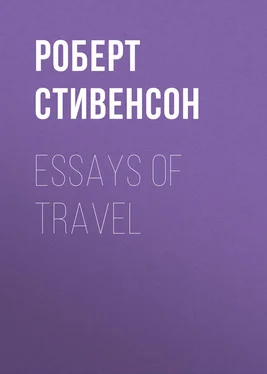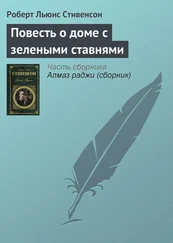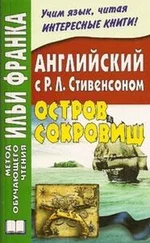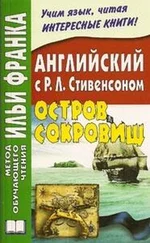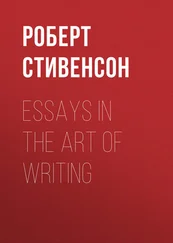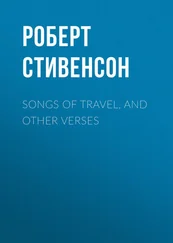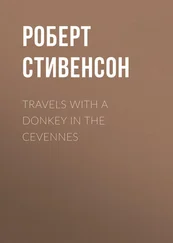Роберт Стивенсон - Essays of Travel
Здесь есть возможность читать онлайн «Роберт Стивенсон - Essays of Travel» — ознакомительный отрывок электронной книги совершенно бесплатно, а после прочтения отрывка купить полную версию. В некоторых случаях можно слушать аудио, скачать через торрент в формате fb2 и присутствует краткое содержание. Жанр: literature_19, foreign_antique, foreign_prose, Путешествия и география, на английском языке. Описание произведения, (предисловие) а так же отзывы посетителей доступны на портале библиотеки ЛибКат.
- Название:Essays of Travel
- Автор:
- Жанр:
- Год:неизвестен
- ISBN:нет данных
- Рейтинг книги:3 / 5. Голосов: 1
-
Избранное:Добавить в избранное
- Отзывы:
-
Ваша оценка:
- 60
- 1
- 2
- 3
- 4
- 5
Essays of Travel: краткое содержание, описание и аннотация
Предлагаем к чтению аннотацию, описание, краткое содержание или предисловие (зависит от того, что написал сам автор книги «Essays of Travel»). Если вы не нашли необходимую информацию о книге — напишите в комментариях, мы постараемся отыскать её.
Essays of Travel — читать онлайн ознакомительный отрывок
Ниже представлен текст книги, разбитый по страницам. Система сохранения места последней прочитанной страницы, позволяет с удобством читать онлайн бесплатно книгу «Essays of Travel», без необходимости каждый раз заново искать на чём Вы остановились. Поставьте закладку, и сможете в любой момент перейти на страницу, на которой закончили чтение.
Интервал:
Закладка:
Was she dead now? or, after all these years, had he broken the chain, and run from home like a schoolboy? I could not discover which; but here at least he was out on the adventure, and still one of the bravest and most youthful men on board.
‘Now, I suppose, I must put my old bones to work again,’ said he; ‘but I can do a turn yet.’
And the son to whom he was going, I asked, was he not able to support him?
‘Oh yes,’ he replied. ‘But I’m never happy without a job on hand. And I’m stout; I can eat a’most anything. You see no craze about me.’
This tale of a drunken wife was paralleled on board by another of a drunken father. He was a capable man, with a good chance in life; but he had drunk up two thriving businesses like a bottle of sherry, and involved his sons along with him in ruin. Now they were on board with us, fleeing his disastrous neighbourhood.
Total abstinence, like all ascetical conclusions, is unfriendly to the most generous, cheerful, and human parts of man; but it could have adduced many instances and arguments from among our ship’s company. I was, one day conversing with a kind and happy Scotsman, running to fat and perspiration in the physical, but with a taste for poetry and a genial sense of fun. I had asked him his hopes in emigrating. They were like those of so many others, vague and unfounded; times were bad at home; they were said to have a turn for the better in the States; a man could get on anywhere, he thought. That was precisely the weak point of his position; for if he could get on in America, why could he not do the same in Scotland? But I never had the courage to use that argument, though it was often on the tip of my tongue, and instead I agreed with him heartily adding, with reckless originality, ‘If the man stuck to his work, and kept away from drink.’
‘Ah!’ said he slowly, ‘the drink! You see, that’s just my trouble.’
He spoke with a simplicity that was touching, looking at me at the same time with something strange and timid in his eye, half-ashamed, half-sorry, like a good child who knows he should be beaten. You would have said he recognised a destiny to which he was born, and accepted the consequences mildly. Like the merchant Abudah, he was at the same time fleeing from his destiny and carrying it along with him, the whole at an expense of six guineas.
As far as I saw, drink, idleness, and incompetency were the three great causes of emigration, and for all of them, and drink first and foremost, this trick of getting transported overseas appears to me the silliest means of cure. You cannot run away from a weakness; you must some time fight it out or perish; and if that be so, why not now, and where you stand? Coelum non animam . Change Glenlivet for Bourbon, and it is still whisky, only not so good. A sea-voyage will not give a man the nerve to put aside cheap pleasure; emigration has to be done before we climb the vessel; an aim in life is the only fortune worth the finding; and it is not to be found in foreign lands, but in the heart itself.
Speaking generally, there is no vice of this kind more contemptible than another; for each is but a result and outward sign of a soul tragically ship-wrecked. In the majority of cases, cheap pleasure is resorted to by way of anodyne. The pleasure-seeker sets forth upon life with high and difficult ambitions; he meant to be nobly good and nobly happy, though at as little pains as possible to himself; and it is because all has failed in his celestial enterprise that you now behold him rolling in the garbage. Hence the comparative success of the teetotal pledge; because to a man who had nothing it sets at least a negative aim in life. Somewhat as prisoners beguile their days by taming a spider, the reformed drunkard makes an interest out of abstaining from intoxicating drinks, and may live for that negation. There is something, at least, not to be done each day; and a cold triumph awaits him every evening.
We had one on board with us, whom I have already referred to under the name Mackay, who seemed to me not only a good instance of this failure in life of which we have been speaking, but a good type of the intelligence which here surrounded me. Physically he was a small Scotsman, standing a little back as though he were already carrying the elements of a corporation, and his looks somewhat marred by the smallness of his eyes. Mentally, he was endowed above the average. There were but few subjects on which he could not converse with understanding and a dash of wit; delivering himself slowly and with gusto like a man who enjoyed his own sententiousness. He was a dry, quick, pertinent debater, speaking with a small voice, and swinging on his heels to launch and emphasise an argument. When he began a discussion, he could not bear to leave it off, but would pick the subject to the bone, without once relinquishing a point. An engineer by trade, Mackay believed in the unlimited perfectibility of all machines except the human machine. The latter he gave up with ridicule for a compound of carrion and perverse gases. He had an appetite for disconnected facts which I can only compare to the savage taste for beads. What is called information was indeed a passion with the man, and he not only delighted to receive it, but could pay you back in kind.
With all these capabilities, here was Mackay, already no longer young, on his way to a new country, with no prospects, no money, and but little hope. He was almost tedious in the cynical disclosures of his despair. ‘The ship may go down for me,’ he would say, ‘now or to-morrow. I have nothing to lose and nothing to hope.’ And again: ‘I am sick of the whole damned performance.’ He was, like the kind little man, already quoted, another so-called victim of the bottle. But Mackay was miles from publishing his weakness to the world; laid the blame of his failure on corrupt masters and a corrupt State policy; and after he had been one night overtaken and had played the buffoon in his cups, sternly, though not without tact, suppressed all reference to his escapade. It was a treat to see him manage this: the various jesters withered under his gaze, and you were forced to recognise in him a certain steely force, and a gift of command which might have ruled a senate.
In truth it was not whisky that had ruined him; he was ruined long before for all good human purposes but conversation. His eyes were sealed by a cheap, school-book materialism. He could see nothing in the world but money and steam-engines. He did not know what you meant by the word happiness. He had forgotten the simple emotions of childhood, and perhaps never encountered the delights of youth. He believed in production, that useful figment of economy, as if it had been real like laughter; and production, without prejudice to liquor, was his god and guide. One day he took me to task – novel cry to me – upon the over-payment of literature. Literary men, he said, were more highly paid than artisans; yet the artisan made threshing-machines and butter-churns, and the man of letters, except in the way of a few useful handbooks, made nothing worth the while. He produced a mere fancy article. Mackay’s notion of a book was Hoppus’s Measurer . Now in my time I have possessed and even studied that work; but if I were to be left to-morrow on Juan Fernandez, Hoppus’s is not the book that I should choose for my companion volume.
I tried to fight the point with Mackay. I made him own that he had taken pleasure in reading books otherwise, to his view, insignificant; but he was too wary to advance a step beyond the admission. It was in vain for me to argue that here was pleasure ready-made and running from the spring, whereas his ploughs and butter-churns were but means and mechanisms to give men the necessary food and leisure before they start upon the search for pleasure; he jibbed and ran away from such conclusions. The thing was different, he declared, and nothing was serviceable but what had to do with food. ‘Eat, eat, eat!’ he cried; ‘that’s the bottom and the top.’ By an odd irony of circumstance, he grew so much interested in this discussion that he let the hour slip by unnoticed and had to go without his tea. He had enough sense and humour, indeed he had no lack of either, to have chuckled over this himself in private; and even to me he referred to it with the shadow of a smile.
Читать дальшеИнтервал:
Закладка:
Похожие книги на «Essays of Travel»
Представляем Вашему вниманию похожие книги на «Essays of Travel» списком для выбора. Мы отобрали схожую по названию и смыслу литературу в надежде предоставить читателям больше вариантов отыскать новые, интересные, ещё непрочитанные произведения.
Обсуждение, отзывы о книге «Essays of Travel» и просто собственные мнения читателей. Оставьте ваши комментарии, напишите, что Вы думаете о произведении, его смысле или главных героях. Укажите что конкретно понравилось, а что нет, и почему Вы так считаете.
